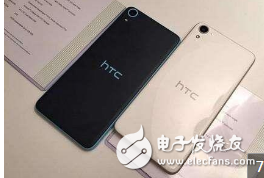In September, after transferring part of its mobile phone business to Gree for $1.1 billion, HTC shifted its focus to the development and production of its own brand, the HTC Vive—a virtual reality device. Many netizens have speculated that this move could help HTC regain a foothold in the VR industry. If this strategy works, it might not be a big loss for the company in the long run.
The VR/AR sector is anything but quiet. Recently, HTC decided to "sell" some of its mobile phone operations in order to concentrate more on VR. This move grabbed headlines as Google paid $1.1 billion, making it one of the most talked-about tech deals of the year. All of this suggests that the VR industry may experience significant growth in the second half of the year, following a strong start in the first half.

However, HTC is currently facing serious challenges. Its revenue in August was NT$3 billion (about $99.69 million), marking a 54.4% drop compared to the same period last year—the lowest monthly revenue since 2013. Sales for the first eight months of the year fell by 14%, totaling NT$39.8 billion. It has been nine consecutive quarters of losses, and according to IDC's latest smartphone market ranking released on September 20th, HTC’s market share is now just 0.68%.
Over the past five years, HTC’s market value has plummeted by nearly 75%, and its current market cap stands at only $1.9 billion. The mobile phone segment has lost less than 2% of the global smartphone market and has fallen out of the top ten players.
On September 21, HTC and Google announced a partnership. Under the agreement, Google joined the group of original partners who helped create the Google Pixel phones, while HTC received $1.1 billion in return. But this doesn’t mean HTC is abandoning its mobile phone business. After the announcement, HTC Chairman Wang Xuehong clearly stated that the company will continue to operate both smartphones and the Vive line.
In the short term, HTC’s collaboration with Google—known for its strong R&D capabilities—can help solve Google’s talent needs, provide access to patents and equipment, and allow HTC to raise funds to address its nine consecutive quarters of losses. It's a win-win situation. However, in the long run, this deal has freed up about 70% of HTC’s R&D resources from the mobile phone segment, which could hurt its innovation capacity and worsen its already declining sales.
After cutting back on its mobile phone business, HTC will now focus more on developing its own smartphones and the HTC Vive. The company continues to invest heavily in VRChat, showing its commitment to building software and content ecosystems. Social interaction is also a key area where Facebook is betting big. At the developer conference in April, Facebook launched its VR social platform, Spaces, for the Oculus Rift. Users can now create realistic avatars, video chat with friends, or even take selfies together in VR.
HTC had already started looking into VR as a new growth driver as early as March 2015. It partnered with Valve to develop the HTC Vive, which is now on the market. According to SuperData, as of June 2017, the Vive sold 420,000 units, which was lower than PS VR's 1 million, but higher than the leader in VR headsets, which sold 243,000 units. Despite this, the Vive still holds a leading position in the industry.
Although the VR industry is still not fully mature, HTC has shown determination to stay in the game. While the market is experiencing a slowdown due to technical limitations like resolution, latency, field of view, and user interaction, major VR companies like Sony, HTC, and Oculus have all reduced prices in an attempt to boost sales. Yet, there are no clear breakthroughs in these areas.
Despite the challenging environment, HTC has chosen to keep its focus on VR, AR, and AI. Ren Fuxin believes this decision was carefully considered. Wang Congqing, President of HTC Vive China, said that after this round of restructuring, HTC will concentrate more on VR, AR, and AI technologies.
ADSL / VDSL Splitter
An ADSL filter separates the analogue voice-frequency signals from the ADSL (broadband) data signals(Broadband being defined as data transfer greater than 128KBPS.)
If ADSL filter/splitters are not used, the ADSL data signals are heard as "noise" on any equipment connected to the "normal" telephone-line. Apart from being annoying during a telephone conversation, there is the possibility that the additional ADSL signals may cause problems with alarm-units (etc) that may be connected across the line.
This ADSL-interference is illustrated in the diagram below that shows how the unfiltered ADSL data signals appear across the "standard" telephone equipment.
We can supply you ADSL Splitter,ADSL Filter, adsl modem splitter,telephone splitter,adsl2+ splitter,adsl filter splitter, ,adsl dsl filter splitter,adsl in line splitter,adsl filter and splitter, ,rj11 splitter, broadband splitter, mdf splitter, adsl modem filter with a good quality and best price.

ADSL Splitter, 2Wire DSL Filter, ADSL Modem Splitter, Telephone Splitter, ADSL Splitter Filter,VDSL Splitter
NINGBO YULIANG TELECOM MUNICATIONS EQUIPMENT CO.,LTD. , https://www.yltelecom.com
